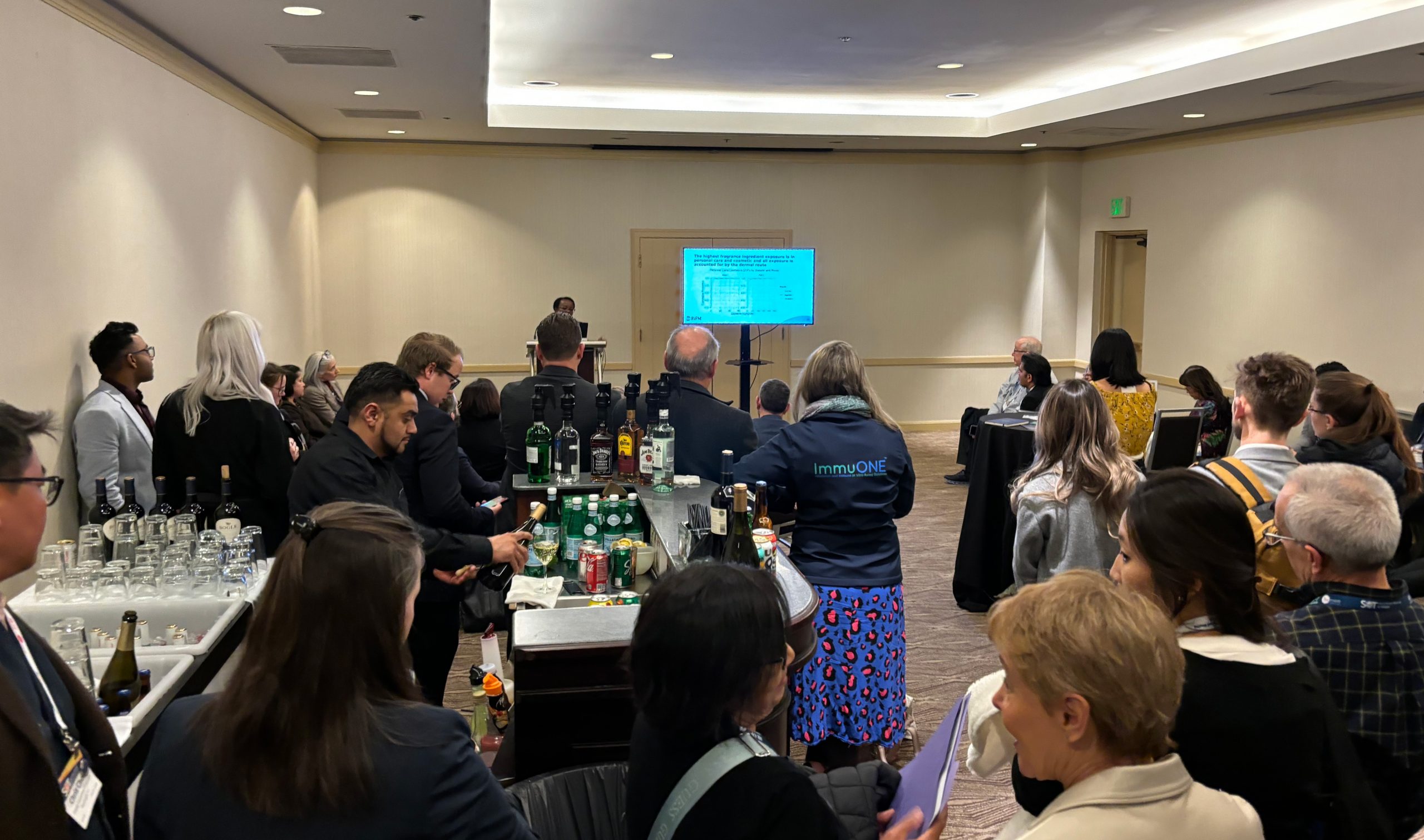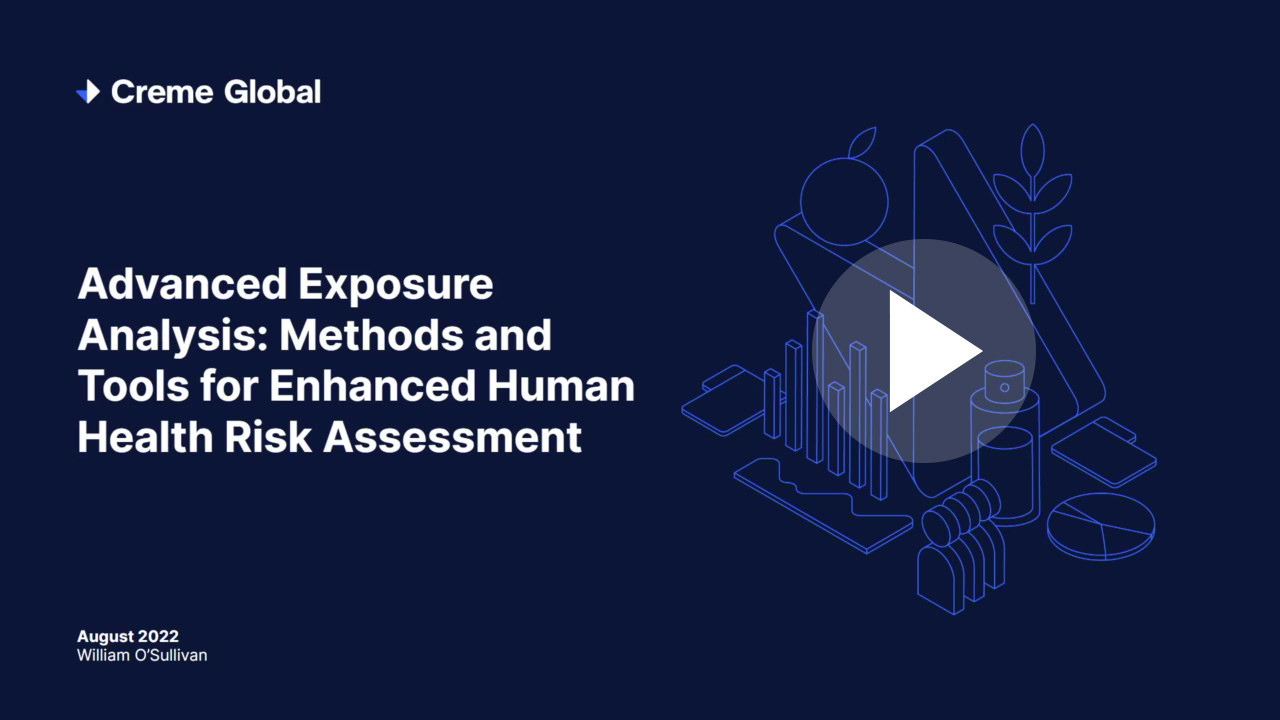Recorded at IAFT watch Western Growers present this joint project with Creme Global on leading an industry-wide data-sharing initiative to ensure food safety with leafy greens.
Talk description
Abstract
Introduction: Western Growers is leading an industry-wide data-sharing initiative to develop a platform and methodology, using artificial intelligence and predictive models, to enhance best management practices and safeguard public health.
Purpose: This proof-of-concept (POC) will securely gather highly confidential data from multiple stakeholders to enable preventive actions for food safety across various regions, commodities and production practices.
Methods: Five initial stakeholders across the specialty crop supply chain, including growers, grower-shippers, and processors were identified. The technology company, Creme Global, performed a review of data required to develop machine learning algorithms to predict and prevent food safety issues for this complex, high-volume industry.
In summary, >100 data types including water, tissue, adjacent land use, etc. were identified as relevant. >1,000,000 data points, spanning three years have been gathered including confidential stakeholder data, weather, etc.. A novel means of gathering and anonymizing data was also developed.
Results: Highly interactive dashboards were developed to enable users to access insights required to drive meaningful change to their food safety culture.
This initiative also addresses the challenges of data standardization and digitization. Most produce farming, harvesting, packing, and processing operations rely on paper-based systems. This Platform addresses data capture in a comprehensive and efficient manner.
Significance: Produce is one of the few foods typically not thermally processed before consumption, thus increasing the potential for pathogens to persist. The short shelf-life creates difficulty in identifying contamination risks and sources. The need for prediction and prevention is paramount.
Through this food safety data sharing initiative, we are bringing produce operations on a revolutionary journey where their data enables smarter decisions on risk mitigation. This project seeks to demonstrate that by aggregating anonymized data, industry-wide collaborative benchmarks can be established to drive real improvements in food safety.
Automated transcript
A Cultural Shift – From Reactive to Proactive
Before I get into what GreenLink actually is, I’ll speak to you a little bit about the cultural shift that I think GreenLink represents. Greenlink is more than just a data-sharing platform. From our perspective, it represents a cultural shift in the produce industry. I’ll speak a little bit about what I mean by that.
Presently, we, in the produce industry have a fairly reactive approach, particularly to things like outbreaks or recalls. So we get stimuli from the outside that tell producers what they should be doing in terms of food safety.
For example, if there’s an outbreak, we get increased pressure from buyers to implement certain produce safety practices. Even if there’s no science backing a particular practice and the same can apply to regulatory pressures. So we’re always in this reactive mode trying to keep up with what’s being required from the external stakeholders.
We think that with an approach of data sharing, looking at data collectively throughout the produce industry, instead of looking at data within each operation, where data exists in silos and different pieces of the puzzle are within the platforms that individual companies have, what if we were to look at these puzzle pieces together and look at the broader picture in terms of what’s happening in terms of food safety in the landscape as opposed to individual farms and so on.
We are looking forward to changing this approach to an evidence and data driven, outcome-based approach. Instead of looking at a checklist and ticking off different boxes, we want operations to think about the outcomes that a particular best management practice may deliver.
We think that looking at data collectively can also help us foster engagement with various stakeholders, such as buyers, regulators, research community, and even entities that provide certain products and services to the produce industry. What I mean by that is insurers, for example, or financial service providers who look at a company’s overall risk profile to provide certain services.
So we can use this sort of data to better engage with those stakeholders. We can harness aggregate data to drive, continuous improvement, right? I talked about best management practices, looking at which practices give us the biggest bang for our buck. We can then focus resources where they’re most needed.
Last, but not least important is that we can use the data for predictive analytics to anticipate and respond to what may be coming our way. So these are some of the things that I think that can really move forward the culture, and shift the culture from a reactive to a proactive approach in the industry.
Why Western Growers?
Why is Western Growers doing this? Why are we well suited to do this?
Because as you probably know, there are a lot of platforms out there that are collecting data and looking at data in different ways.
Trusted Partner Since 1926
But I think that the reason that Western Growers is well positioned to do this is that we’ve been around for a very long time. We have built a relationship of trust with our members for almost over a hundred years.
A lot of our members who we work with actually trust Western Growers. That doesn’t mean that the trust is 100% that we just go in and ask an operation to give us their data and they’re happy to do it. We do have to work on that a little bit, even with the background that Western Growers has.
Diverse Membership
We also represent a very diverse group of members. We’re representing different commodities across various regions. Our members are within different parts of the supply chain. We have farmers, we have harvesters, processors, packers, and so on. Bringing in all that data into this platform could be very meaningful, as we continue to develop it.
Multi-faceted, Adaptable Approach
We’ve also taken a multifaceted, adaptable approach to improve data collection, standardization and so on. Data sharing is not something Western Growers is trying just now, through this platform, through GreenLink. We have actually been quite active in this space for the past decade or so, and we are learning from some of our earlier trials in this space and using that knowledge to make sure that this time around, we have a very multifaceted and flexible approach to how we collect data, how we connect with the participants, what types of data we’re trying to collect and the scope of the overall project.
Non-Profit Agricultural Trade Association
Western Growers is a nonprofit trade association – agricultural trade association. What this really means is that the funding really comes from within Western Growers for the development of this platform. Even though we are looking at grants as a potential financial support for this project, it’s not the primary funder of this effort. Which means that we’re not going to start and stop this effort. We have continuous sustained financial support to keep this project going and to make sure that it’s giving our members what they’re looking.
With that, let’s jump right into what GreenLink is.
What is GreenLink?
As I mentioned, it’s an online data sharing platform that’s been developed in collaboration with our partner Creme Global. Creme Global is a data analytics company located in Dublin, Ireland. They’ve helped us with the development of the platform.
Presently in GreenLink, we have over 100 growing operations across three states and over 1 million data points and spanning a six-year time frame.
The Platform
Company Specific View
This is what the platform looks like. We have a company-specific dashboard. This is what an individual operation would be able to see. You can see across the top, we have the pre-season, pre-harvest and post-harvest segments of the platform. This is how the platform is divided presently.
We have some filters on the left-hand side, a few KPIs across the top, and then various views of the platform. We’re currently looking at the map view Tissue Test, Water Test. You can flip through those. We don’t have a live demo, but this is what the platform looks like.
This information is very granular because this is a company-specific view.
Related: What is a data trust? The complete guide for growers, organizations, regulators and manufacturers.
Aggregate Dashboard
As we move to the aggregate view, where we’re using anonymized aggregated data, you can see that the information is slightly different, less granular. We still can see some of the KPIs across the top. Filters are again on the left-hand side. You can drill down into this information a bit more.
So this is what the platform looks like. We’d love to give you a more detailed demo if you’re interested.
Turning Challenges into Opportunities
This project has been a lot of fun. It’s been very exciting, but it hasn’t been without its challenges, right? So we’ve had a few challenges that we’ve had to address. We’ve tried to turn these challenges into opportunities.
You can see trust is listed as the number one challenge. When you approach an operation and tell them, “Give us your data. So we can then do all these great things with it.” It’s not the most exciting thing for them. They have a lot of things to consider in terms of liability. What implications there might be in terms of the regulatory framework within which they’re working.
So we have a lot of challenges to work with. Standardization is a big one, but we’ve addressed all of these challenges in a proactive approach. As you can see, in terms of standardization, we’re starting with a very narrow scope to make sure that we can work with different partners, with the academic partners, with our regulatory partners, with the industry and try and work on standardization in a meaningful way.
I cannot go into each one of these in detail because I’m running out of time. So I’ll just move to the next slide, which is really the benefits.
Benefits
What difference does it make? What will this platform do for us at the end?
I think it could really help us see the landscape view of food safety. Instead of looking at food safety in chunks, on a farm based, we can look at a landscape just like we do with watershed. When we’re studying a water body, we don’t just look at that one particular water body, but we look at the watershed as a whole. I think we can do the same thing with food safety and really help to change, not just the culture of food safety in one company, but of the industry as a whole, by looking at this broader landscape.
We can use evidence-based insights to drive favorable outcomes within our operations and with stakeholders. We can use industry scale, trend analysis, using public and private data to utilize machine learning for predictive modeling, right? That is the ultimate goal of this platform.
We can use all of this data to drive practical and evidence based solutions on the farm. Looking at best management practices that are most effective in addressing particular food safety challenges.
So with that, I’ll stop and take any questions.
Questions from the Audience
Moderator: “Any questions from the audience?”
Audience #1: “Okay. Thank you for your presentation. Very interesting. You talked about a large number of data points. I’m just wondering if you can give us some ideas of what kinds of data you’re actually collecting.”
Afreen Malik: “Yeah, absolutely. So presently we’re collecting Water Test Data, and Pre-Harvest Product Testing Data. We’re collecting data related to farm inspections. So pre-harvest and pre-season farm inspections. And all the metadata surrounding that as well.
Audience #1: “Okay. So it would be a range of different things than microdata?”
Afreen Malik: “Exactly. So microbiological water test data and product testing data for pathogens.”
Audience #1: “Thank you.”
Afreen Malik: “You’re welcome.”
Audience #2: “I have a question. So you mentioned that there is an opportunity to link up with the regulatory bodies.”
Afreen Malik: “Mm-hmm.”
Audience #2: “So do you think this data can be used for any product recalls or stuff like that?”
Afreen Malik: “Well, I’m not sure about product recalls, but we are collaborating with regulatory bodies to sort of tap into the data sets that they have and see how that might improve GreenLink. And of course there’s going to be, you know, information perhaps going in the other direction as well. And we have various governance committees as part of this project to kind of help guide that process.
Any other questions? Okay, thank you very much.”


